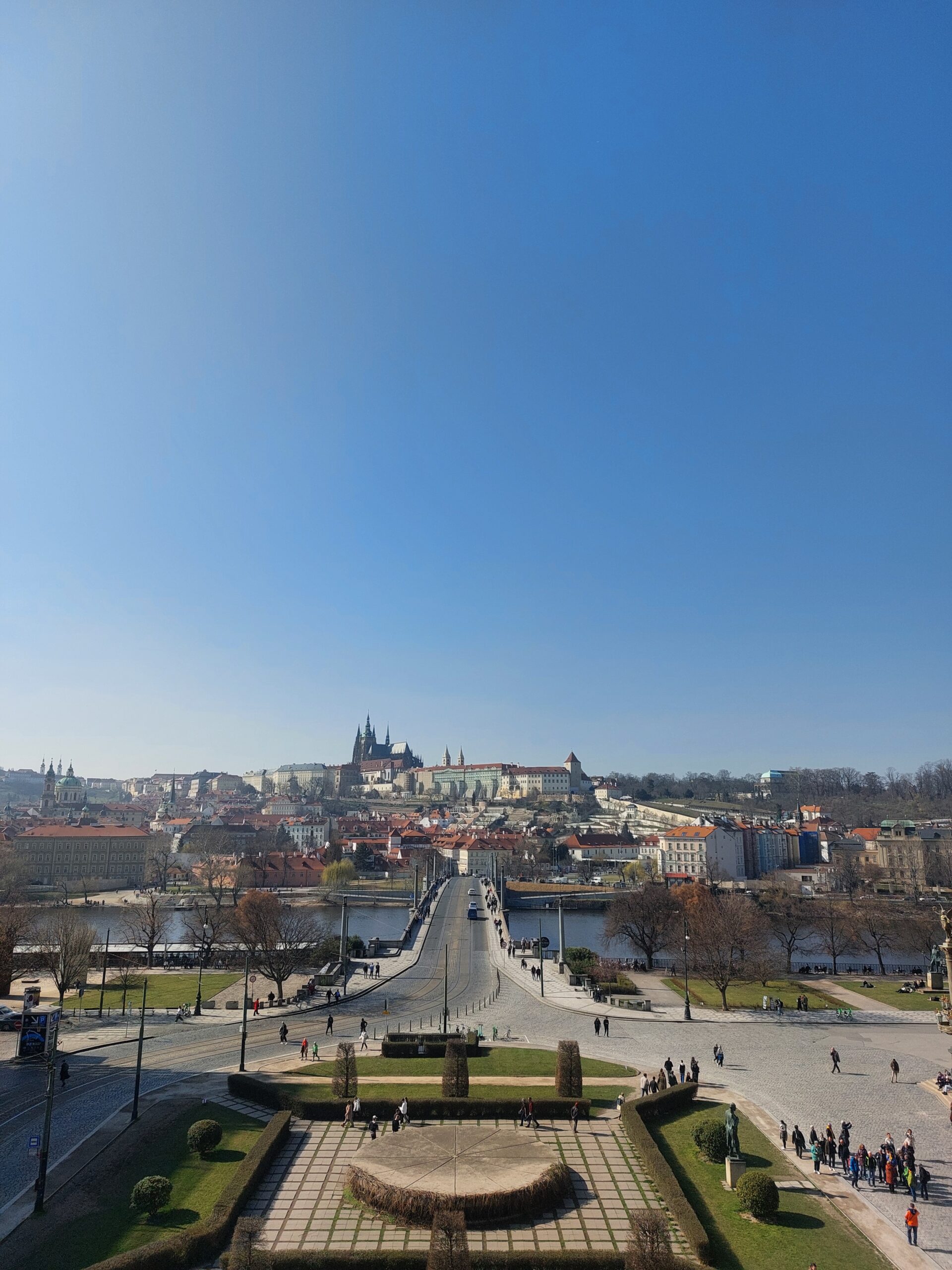By Franziska Putz
Talking about oneself is rarely a comfortable thing. Even less so if you’re standing high up on a podium and have to promote your own work and ideas in front of a crowd full of people not knowing anything about it. Yet this is precisely what makes up a big part of academic work – presenting your research and your ideas to an audience that is waiting to discuss it. So as a young researcher, where else to practice this if not at an internationally renowned student conference like the PRAGESTT? This annual conference for German literature and linguistics, hosted by students of Prague’s Faculty of Arts, offers an ideal platform for emerging scholars to develop their abilities, practice presenting and debating their research, and making new friends in the meantime.
In my case, I was presenting an extract from my dissertation project on the narratological aspects of reckoning books. My lecture focused on investigating how knowledge is ’narrated‘ in selected arithmetic books from the Late Middle Ages and the Early Modern Period. As a popular part of vernacular literature, these books served to convey mathematical knowledge in an application-oriented way. Contrary to the obvious assumption that they therefore harbor little narrative, the texts convey arithmetical knowledge throughout individual examples in appealing, enjoyable narrative forms. The deeply human condition of a ’necessity to narrate‘ fills arithmetic books with culturally, historically, politically and socially motivated content. To show my work in progress, I selected two reckoning examples and demonstrated how an analysis of their narratological structure and cultural-historical relevance of arithmetic examples works: On one hand, the widely popular and frequently handed-down example of the „Torwächter im Apfelgarten“ (Gatekeeper at the apple orchard), which appears in various affect-inducing narrative forms and shows the importance of popular mathematics in the Early Modern Period, and on the other hand the so-called „Josephsspiel,“ an example that construes a stark contrast of „Self“ and „Others“, which in the reckoning books is presented in a highly discriminatory form against Jews.
When talking about the PRAGESTT, the great organization, the clever handling of programming and lectures, and the goal of bringing together young researchers from all over Europe have to be mentioned. My ‘partner in crime’ for the whole conference was another doctoral researcher eager to present her dissertation: Stephanie Zima, part of the University of Salzburg and the University for Continuing Education Krems, presented her research on 19th-century libraries in Lower Austria under the title „Habent sua fata libelli“, roughly translated to „Every book has its own fate“ – as Stephanies title suggests, every book indeed has its fate: for her library collection and my reckoning books, that fate now includes becoming subjects of contemporary academic research and therefore showing their enduring relevance for knowledge transmission across centuries!


Schreibe einen Kommentar